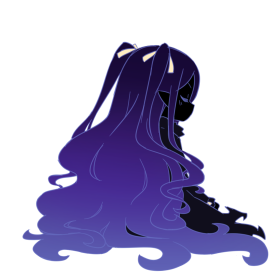Returning Characters and Why exactly we love them, or why we love fictional people overall
Around 2023-2024 I ran some DND campaigns with my friends online during the June holidays and end of year holidays, as the Dungeon Master, and after reviewing my notes, I’ve come to realise that a lot of the “hype” moments stem from returning characters from previous campaigns. For example, one of my favourite players, upon seeing an old character return, was screaming in our group chat.
There’s a special kind of feeling in the air when a familiar character steps back into the spotlight. You get that “OH MY GOD IT'S HIM!” feeling, especially with side characters. But why do these comebacks hit so hard? Why does the return of a fictional figure flood us with so much emotion?
The Familiarity Bias, or The Mere Exposure Effect
We naturally gravitate toward what we already know. This is a survival mechanism. Familiar faces feel safer, more trustworthy, and more rewarding. We can see this in things like how we stick to the same friend groups we already know during group work and projects if possible. When we see a side character we know, the time we spend with them draws us to them, causing a level of favouritism. Returning characters are emotionally “pre-installed” in our memory, and their reappearance lights up positive associations. This is similar to buying a brand because you recognise it from an advertisement, or a song you initially disliked “growing” on you, with you eventually liking it. We can see this from things like the MCU where side characters like Agent Woo who first appeared in Antman, appear in later shows like Wandavision.
Nostalgia
Returning characters often activate episodic memory, memories of where you were when you first saw them. Nostalgia engages the limbic system, especially the hippocampus and amygdala, who are in charge of memory formation and emotion respectively.It also restores emotional continuity by connecting the present to a more emotionally charged past. The brain treats these moments like reunions, even if they’re fictional, causing it to associate the entire experience with a “reward”. We can see this in shows like Pokémon when for example, Ash Ketchum reunites with old Pokémon (like Butterfree or Charizard) in the final season of Pokémon, which sparked emotional reactions because viewers remembered watching him say goodbye as kids. We can also see this in Buddyfight’s anime adaptation, many of Gao’s (the MC) old buddies were reunited with him for his final season as the protagonist, fighting alongside him.
Parasocial Bonds
We tend to form one-sided relationships with fictional characters, known as parasocial relationships. Over time these bonds grow strong enough to produce feelings for our brain to perceive them as reality, noticing their prescence, or abscence.
Seeing them again is proceesed similarly to meeting a long lost friend. That's why peole cry over fictional deaths and celebrate their returns
even if we consciously know they aren’t real, the subconscious treats them in a similar way due to the fact that the brain can struggle to distinguish reality from fiction. This effect is only heightened with the rise in texting as a form of communication, now, we don't even need a “face” or a “person” to be there in order to mentally treat them as a friend.
This can be seen from the recent rise in addiction to AI chatbots, because it feels like a friend or lover and not an AI, fulfilling the needs of the people using them, albeit in unhealthy ways.
What does this mean?
It means returning characters aren’t just a narrative trick, they are a psychological shortcut to emotional investment. That’s why we keep seeing sequels, spin-offs, reboots, and legacy characters: they already live rent-free in our minds. They’re safe bets for reigniting attention, emotion, and hype
This also explains excitement over crossovers, a new character entering Super Smash Bros or even just obsessing over an Original Character someone made.
These emotional shortcuts make us care faster, deeper, and more instinctively than if they were entirely new.
This Article was written much earlier than my other one, as a result it is rather lackluster in content, however, it's getting a rewrite very soon!
Thank you for reading!
↶ Back to the Void ↶ I'm Feeling Unlucky (Directs to my other article)